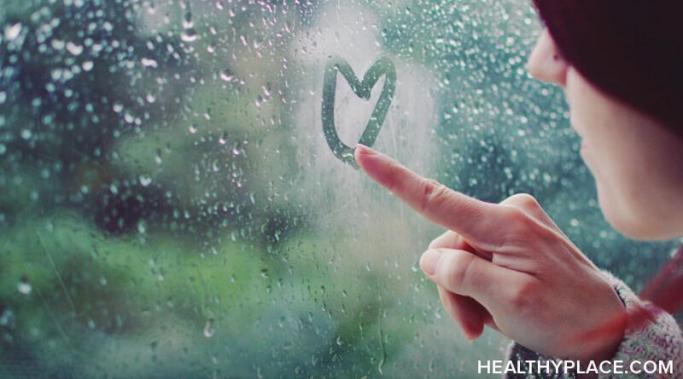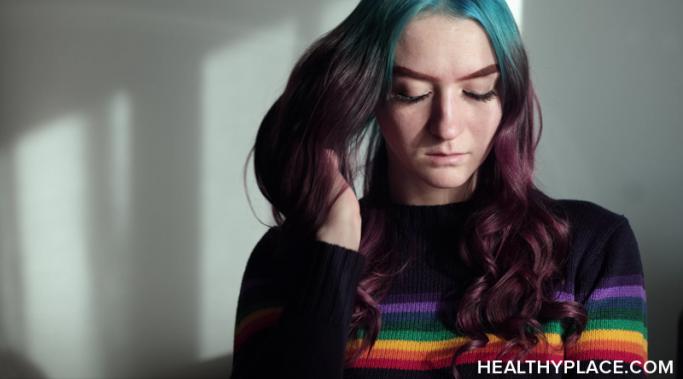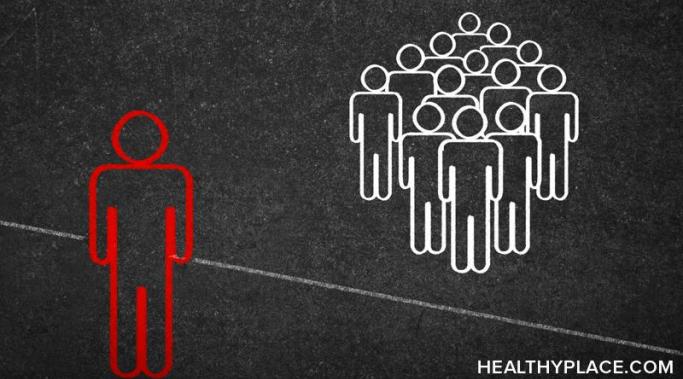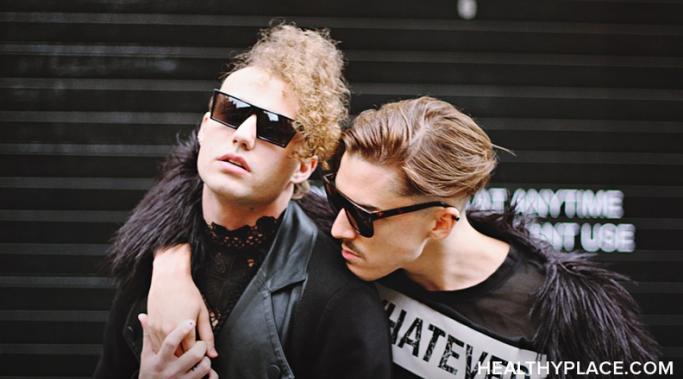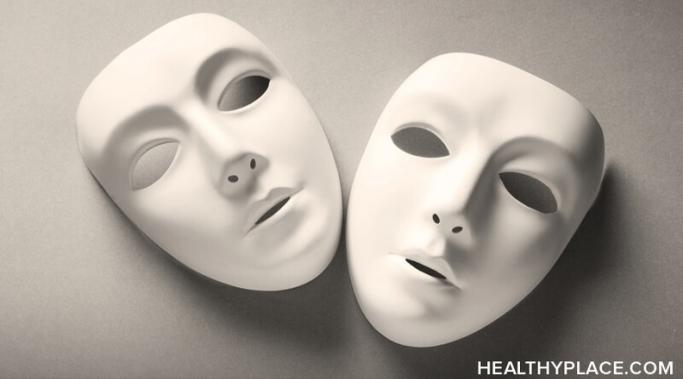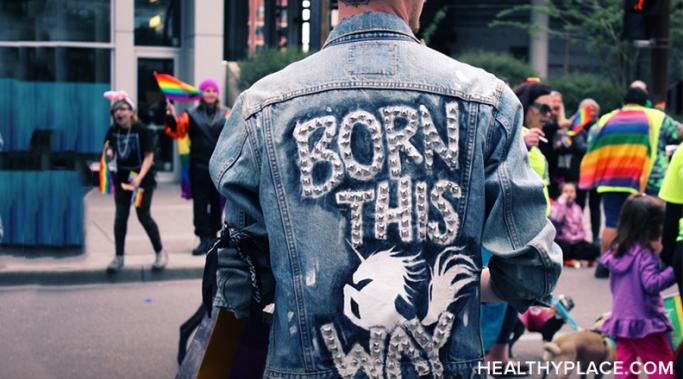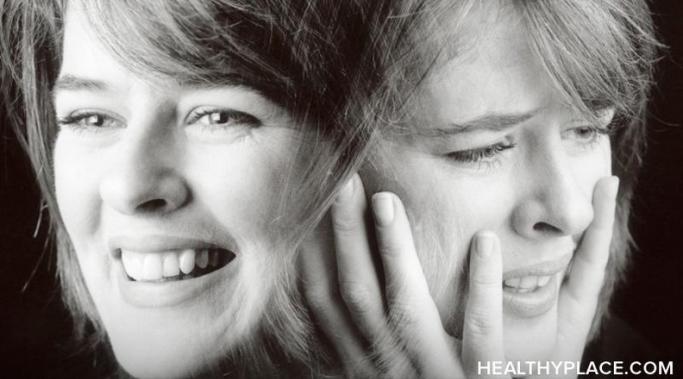I have nonbinary gender insecurity. In America, there are two genders. There are two sexes. It is not common knowledge that sex and gender are different and that there are multiple sexes. When I applied for jobs, I was asked about my gender and given two options: male or female. I didn't even have the option I needed to answer an optional question. I wasn't sure if they meant to ask about my sex or my gender. I was forced to choose or decline.
LGBT Stigma
My last post examined harmful misconceptions about demisexuality (lack of sexual attraction without emotional intimacy) and how they are detrimental to the mental health of demi people. In this follow-up post, I want to talk about one of the most prevalent and harmful, yet -- in my opinion -- under-addressed issues in the queer community that causes immeasurable damage to social and mental health: biphobia.
We live in a society where casual sex is a normal part of dating culture. There is, of course, nothing wrong with a casual hookup between consenting adults, but for demisexual folks (people who only experience sexual attraction after forming an emotional connection), dating and intimate relationships can be a bit harder to navigate -- in no small part because there are still a lot of misconceptions about what demisexuality is and is not. These misconceptions not only put a strain on our relationships but on our mental health as well.
I identify as a lesbian in the lesbian, gay, bisexual, transgender, queer, intersex, asexual, etc. (LGBTQIA+) community as a whole. My gender expression follows a more masculine route regarding clothing and hairstyle. Gender expression for many of us in the LGBTQIA+ community can lead to judgment by a society which is used to gendering things such as clothing or hairstyle. These judgments and biases can lead to fear and anxiety for those of us in the LGBTQIA+ mental health community. My anxiety was heightened for years regarding my treatment from others who may not agree or understand my gender expression.
The lesbian, gay, bisexual, transgender, queer, intersex, asexual, etc. (LGBTQIA+) community faces mental health challenges specific to their gender and sexuality. Transgender and non-binary individuals (TGNB) often experience mental health challenges such as increased acts of rejection or violence and microaggressions by mental health providers and the general public. These disparities could lead to TGNB individuals suffering from mental health concerns such as anxiety. Learning about those challenges faced by our TGNB specific community may help us check our biases at the door and provide allyship to these individuals.
I have been hospitalized twice due to my erratic mental health. My gender expression of gender non-conforming (outward expression different from societal gender norms) was not taken seriously during these hospitalizations. I was subjected to uninformed mental health professionals and demeaning mistakes due to the lack of knowledge or respect for my gender non-conforming presentation. The lesbian, gay, bisexual, transgender, queer, intersex, asexual, etc. (LGBTQIA+) community deals with barriers to gender-affirming care regarding mental health and hospitalization often. These are just a couple of ways I was subjected to insensitive mental health care regarding my gender expression.
Gender identity in the lesbian, gay, bisexual, transgender, queer, intersex, asexual, etc. (LGBTQIA+) community is important when speaking about mental health. Society has made a habit of assigning gender based on assumptions relating to outward appearance and tone of voice. Mental health concerns can be tied together with gender identity, and it is important to respect an individual's chosen identity without our own biases getting in the way.
Pronoun usage in the lesbian, gay, bisexual, transgender, queer, intersex, asexual, etc. (LGBTQIA+) community is important when dealing with mental health concerns. Using proper pronouns when speaking to others about their mental health can provide a safe and comfortable space for them to release their emotions.
My mental health caused me to visit a psychiatric hospital when I was 19 years old. I had never experienced hospitalization for my mental health, nor did I have adequate coping skills going in. In addition to my mental health deteriorating, I had just come out as a lesbian. I was searching to find my place in the lesbian, gay, bisexual, transgender, queer, intersex, asexual, etc. (LGBTQIA+) community. I found ways to cope once in the hospital, though. Read further to see what helped me cope during this dark time in my mental health past.
The new year ahead has caused me to reflect upon the major ways I advocated for my mental health needs to gain back stability; after all, the past year has been rough on my mental health. The year brought about new struggles for my anxiety and new lows in my depression. My posttraumatic stress disorder (PTSD) flared with the added trauma of the pandemic as well. These changes required me to reach out for help. I realized my mental health was affected by my lack of feeling comfortable regarding my treatment when reaching out for help and advocating for my mental health needs.
